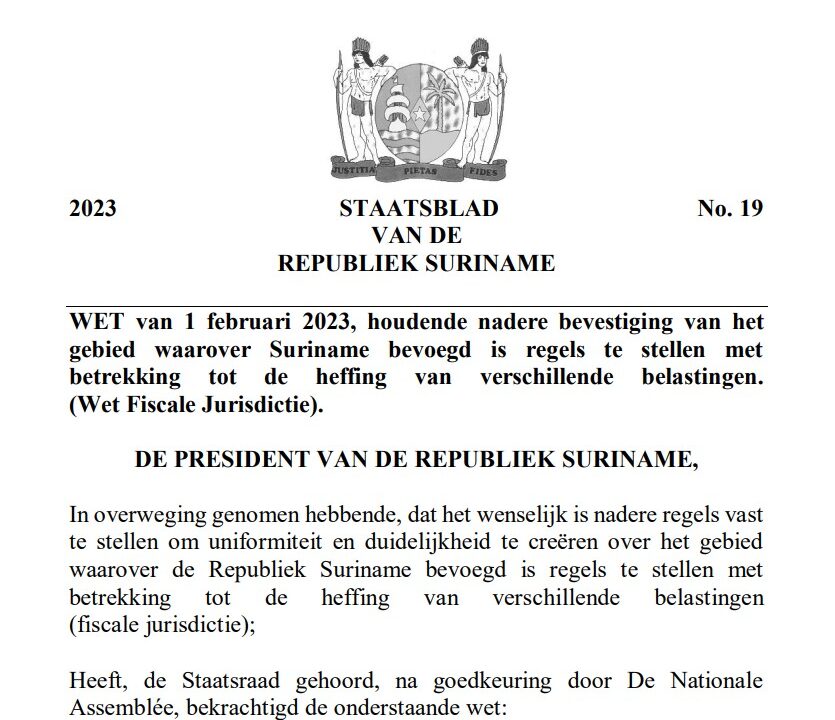
FISCALE WETGEVING ALS BASIS VOOR DUURZAME ONTWIKKELING
October 5, 2017
Tough job ahead
March 20, 2018VAT Breaking!
In a Late-Sunday-Night announcement the Government of Suriname (GOS) on April 15th has again postponed the implementation date of the VAT for an indefinite period. As mentioned in our previous update (see below) the introduction of VAT in Suriname was set for July 1st 2018. This was after an earlier deadline for January 1st 2018 wasn’t met.
GOS among others cites delays in the preparations of a new draft of the VAT law and in the transformation of the computer-system of the Tax Service as reason for its decision to postpone the introduction of the VAT. It further says that the preparations will steadily continue and that the general public will be regularly informed on its status through the official sources.
VAT UPDATE
The Government of Suriname (GOS) has increased the intensity of its public information campaign related to the introduction of a VAT in Suriname. In view of this it has recently launched a website (www.belastingdienst.sr) as official source to inform the general public on the background and the preparations of the implementation of the VAT.
The introduction of the VAT was initially planned for January 1 st 2018, but was postponed for an indefinite period by the Minister of Finance. The main reason for this was that the (first) draft of the VAT legislation was met with fierce criticism from tax specialists and other stakeholders. Besides it was obvious that the Tax Authorities (TA) by far were not ready yet with the institutional improvement/strengthening of their organization, which is considered crucial to accommodate a smooth roll out and execution of a complex new tax as the VAT.
TA has now set July 1 st 2018 as the (new) date for the implementation of the VAT, but it remains to be seen whether the target it has set itself will really materialize. To date there still is no new draft VAT law and the current status of the necessary institutional improvement/strengthening of the tax organization remain unclear. Once TA has a new draft, this will have to go through the Council of Ministers, the State Council and the Parliament, which ultimately will decide on approval of the law. The State Council and the Parliament generally consult with external experts and other stakeholders before deciding on any draft law which is presented to them respectively for advice and approval.




